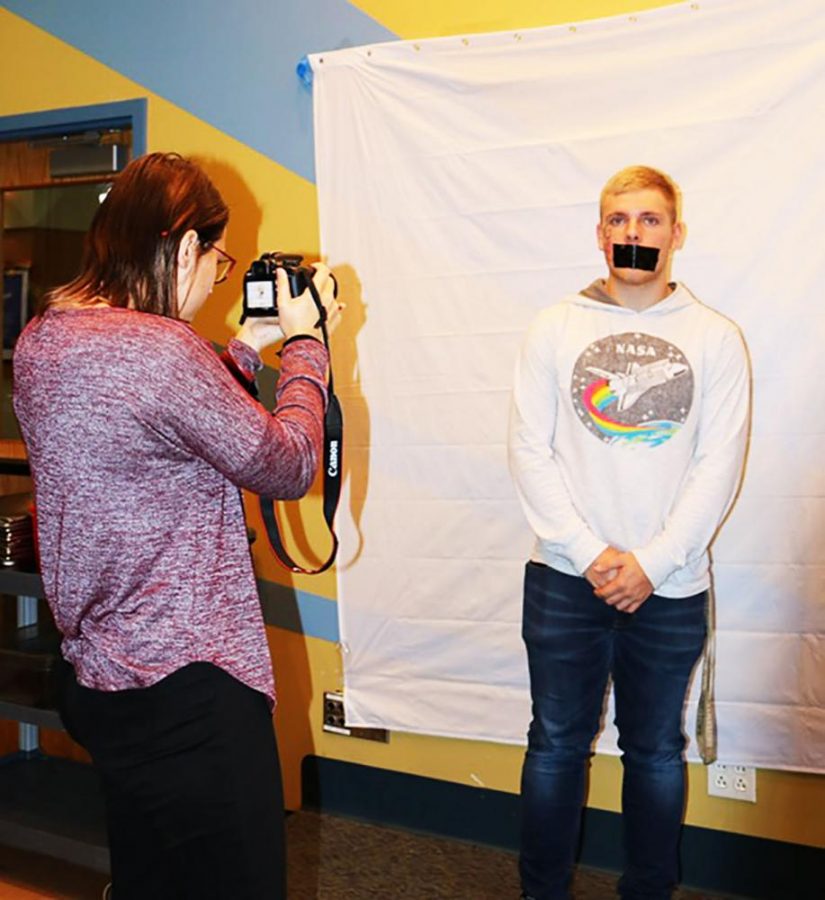Conduct cases get examined
Sophomore Kayla Johnson takes a photograph of freshman Ben Nogroski at the Mt. Cat Club for a No Hate Photo Shoot sponsored by Alliance Club members.
October 18, 2017
When a sexual harassment allegation is filed, Title IX Officer Amy Buxbaum is to conduct an investigation of whether a student code of conduct has been broken.
“In its essence, Title IX directs that any educational institute that receives federal funding is required to make sure students are not denied educational opportunities based on sex,” she said of the federal law.
She also said that Title IX requires Pitt-Johnstown officials to ensure that sexual assault, dissonance or harassment do not effect students’ ability to learn.
For Buxbaum to conduct an investigation, the allegation cannot have triggered a Clery Act violation – a serious violation of criminal law.
“If there is a (Clery Act violation), that would require police action,” Buxbaum said.
Buxbaum said that since the Clery Act is federal law, it requires police officers to gather statistics of criminal offenses, hate crime and arrests or referrals for disciplinary action.
However, when an allegation doesn’t trigger the Clery Act, Buxbaum does her own investigation.
“We want the complaining party to have the ability to take care of themselves first,” she said.
She said the person is able to receive counseling if they choose.
During her investigation, Buxbaum said a number of interim measures are put in place.
“The complainant (accuser) and the respondent (accused) can receive a schedule or housing change, and (Pitt-Johnstown counselors) offer counseling services,” she said.
No-contact orders can also be placed, according to Buxbaum.
While conducting the investigation, Buxbaum files statements from both the complainant and respondent.
“I’ll also seek statement from any witnesses, and see if there are any text messages or social media posts (that may be relevant),” Buxbaum said.
No one is required to talk to her, according to Buxbaum.
After interviews are conducted, a report includes relevant statements made from people interviewed.
“Both parties then have five days to clarify (the report) and are able to tell me any additional information (they may see relevant),” she said.
Buxbaum also said that she makes a finding of fact meaning she decides based on facts what is the likely truth.
“My report is based on the evidence presented,” Buxbaum said.
After the report is finalized, it is sent to Pitt Title IX Coordinator Katy Pope, who reviews her findings.
“(Pope’s) role is to look at the (report) and determine if the findings are in the (report),” Buxbaum said.
Pope’s main role is to determine whether there was a code of conduct violation.
“If a violation happens, it gets referred to (Student Affairs Vice President Shawn) Brooks,” Buxbaum said.
According to Brooks, all of the information then gets forwarded to him for a complete and thorough review.
“My decision is not solely based on the Title IX coordinator investigation, but rather a review.
“When my review is complete, I issue my findings and sanction the student accordingly,” Brooks said.


